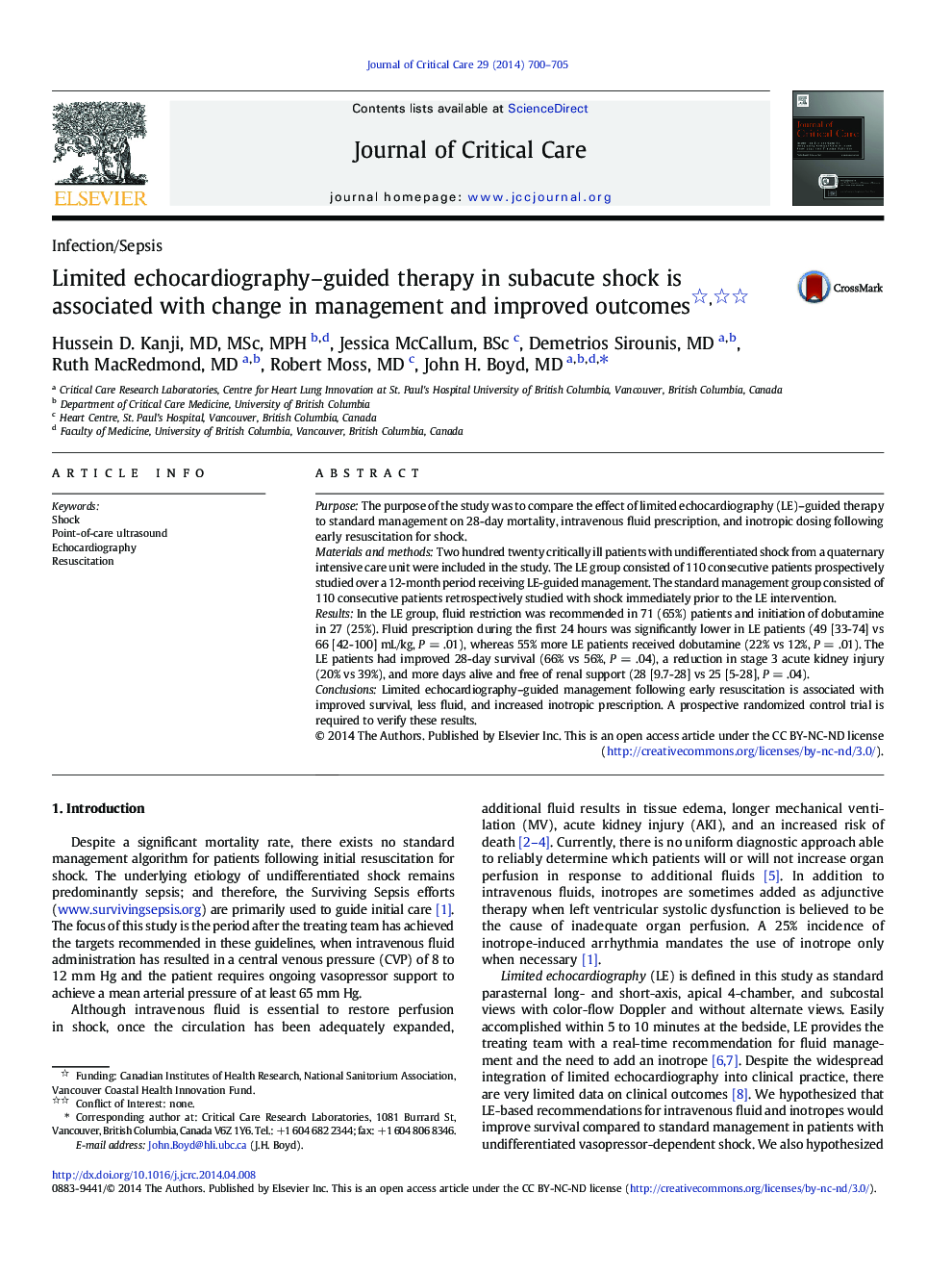| Article ID | Journal | Published Year | Pages | File Type |
|---|---|---|---|---|
| 5885957 | Journal of Critical Care | 2014 | 6 Pages |
PurposeThe purpose of the study was to compare the effect of limited echocardiography (LE)-guided therapy to standard management on 28-day mortality, intravenous fluid prescription, and inotropic dosing following early resuscitation for shock.Materials and methodsTwo hundred twenty critically ill patients with undifferentiated shock from a quaternary intensive care unit were included in the study. The LE group consisted of 110 consecutive patients prospectively studied over a 12-month period receiving LE-guided management. The standard management group consisted of 110 consecutive patients retrospectively studied with shock immediately prior to the LE intervention.ResultsIn the LE group, fluid restriction was recommended in 71 (65%) patients and initiation of dobutamine in 27 (25%). Fluid prescription during the first 24 hours was significantly lower in LE patients (49 [33-74] vs 66 [42-100] mL/kg, P = .01), whereas 55% more LE patients received dobutamine (22% vs 12%, P = .01). The LE patients had improved 28-day survival (66% vs 56%, P = .04), a reduction in stage 3 acute kidney injury (20% vs 39%), and more days alive and free of renal support (28 [9.7-28] vs 25 [5-28], P = .04).ConclusionsLimited echocardiography-guided management following early resuscitation is associated with improved survival, less fluid, and increased inotropic prescription. A prospective randomized control trial is required to verify these results.
